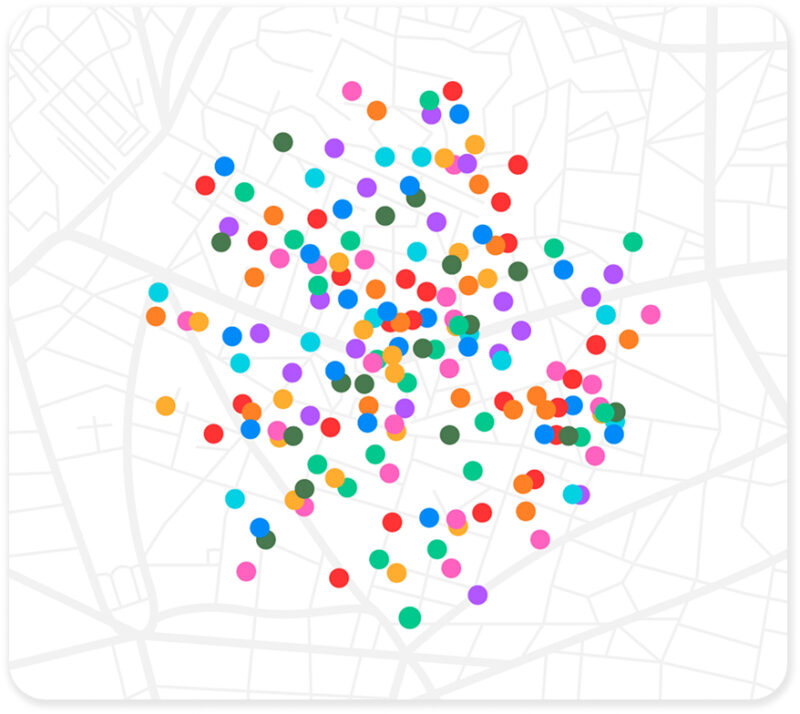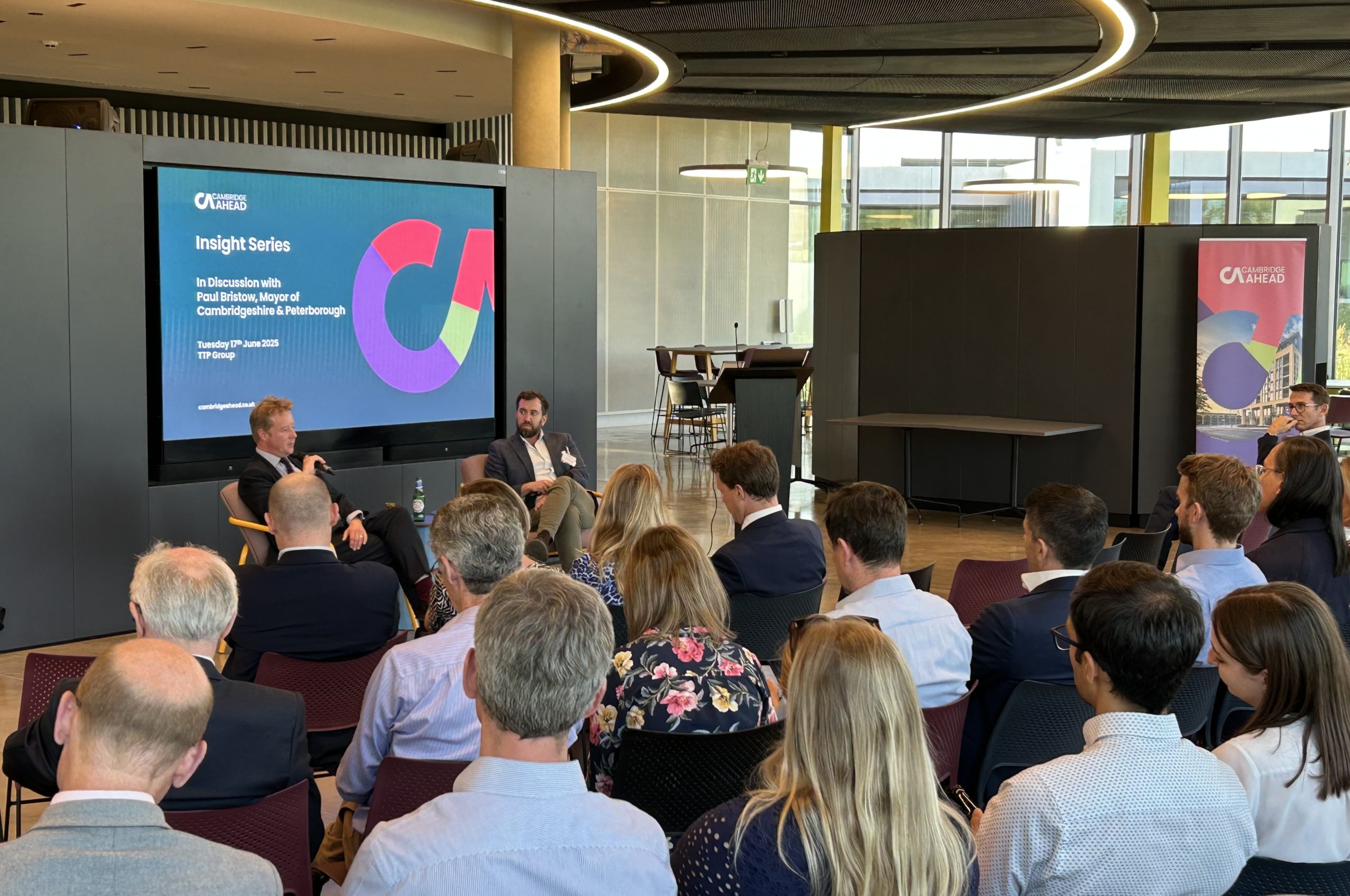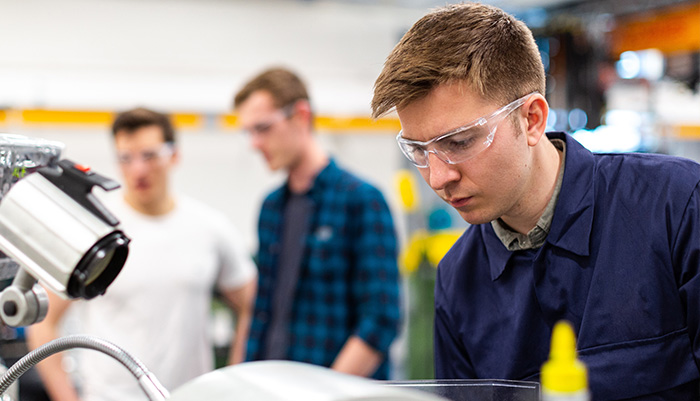Dame Julia King, Baroness Brown of Cambridge, Chair of the Cambridgeshire & Peterborough Independent Commision on Climate.
In October 2021 the Cambridge & Peterborough Independent Commission on Climate called for urgent action to tackle the impact of climate change locally. The Combined Authority and local councils have broadly accepted the recommendations contained in its report, Fairness, nature and communities – addressing climate change.
We have very high emissions in the Cambridge area compared to elsewhere in the UK and that is challenging, in part because this region grows a lot of vegetables and salad on degrading peat, a major source of emissions. But even excluding emissions from peat, we only have about six years remaining before we will have exhausted all our ‘allowed’ share of emissions to 2050, if we are to play an equal part in delivering the UK’s Net Zero target.
One factor is transport and the traffic corridor through our region that serves the East Coast ports. It’s noteworthy that in this area, we drive significantly more miles to work than most of the UK, and we need to cut that commute. A substantial number of people began working from home over the last couple of years, successfully so, and how many more people could do it, given the opportunity, if we installed great broadband right across our region? Moreover, we need to consider how to create better paid jobs in locations further away from our cities, to reduce the need to travel at all. And of course, we need to improve public transport.
When people do need to get from A to B, we should plan for the changes we want to see. For example, with the Oxford- Cambridge Arc developments we must get away from the ‘predict and provide’ model for transport provision which always leads to creating more roads, increasing congestion and emissions. While some choose to live outside our centres, many on lower incomes are forced out by high house prices, then face long and costly commutes.
This kind of inequality isn’t limited to travel. When it comes to dealing with hotter summers, more affluent families can afford things like window shutters and a garden large enough for a shady tree. Compare that to someone on a low income living in a small flat that becomes unbearably hot and forces them out to a public park to get fresh air.
Employers might play a role here. Heat affects productivity, so with greater numbers spending more time working at home, companies could consider offering low interest loans to their employees to make changes to their homes to cope. These could also finance energy efficiency improvements – while vehicle emissions reduce when people aren’t commuting to work, their water and energy usage rises.
Perhaps our combined authority could use their borrowing powers to do something similar to extend this offer to wider population? It may be too much to ask an individual council to fund this sort of thing but a specialist investment team might be able to create funding solutions, for example attracting pension funds, which are prepared to take a long-term view.
While it probably isn’t practical, healthy, or desirable to live life permanently in shadow, being able to be in the shade, out of direct sunlight, will become increasingly necessary over the next decade. And we can plan for this today – architects can design features on buildings that cast shade at critical times of day and developers can plant trees alongside pavements, reducing the temperature for people on foot and encouraging them to walk more.
We need to think about water too, starting with how to manage heavy rainfall. Cambridge should become spongier, to give water somewhere to go when it rains hard. The development at Eddington is a good example of what can be done – it features more green space and water channels, giving water somewhere to go and directing it to where it can be stored. There are many other actions we can take, such as installing more sustainable urban drainage systems, increasing the use of green roofs and porous paving, and helping farmers create on-farm water storage.
At the same time, we must be smarter about how we conserve water. Putting water efficiency labels on appliances, taps and bathroom fittings could have a big effect on behaviour, as energy efficiency labels have. And why can’t people see their water usage in real time, on a smart meter, just as they can with their energy usage? That could make a difference.
This may all sound daunting but the solutions already exist to start tackling many of these challenges – we just need to begin. Addressing climate change is a prime candidate for experimentation and local approaches could be interesting.
How about developing the area’s first zero emission village, developing a programme that helps people in historic homes answer the zero carbon challenge, or finding solutions to store some of the energy collected by solar panels on a street-by-street basis? That would add up to a great start.
To read the full report click here.




